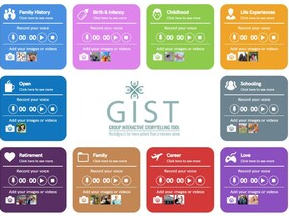
Novo Holdings announced that it has led an investment in AgNext Technologies Private Limited, a breakthrough agricultural and food technology company enhancing trust along the food chains by innovating artificial intelligence-based food quality assessment technologies.
Founded in 2016 with operations in India and Abu Dhabi, UAE, AgNext Technologies is committed to advancing, scaling, and commercialising an integrated platform for rapid, precise, cost-effective and portable food quality evaluations, benefiting all stakeholders across the agricultural value chain.
By digitising quality assessment, the company is establishing benchmarks for ensuring transparency in food transactions from origination to consumption. The company has built scalable models providing fair pricing in food chains, usage of unadulterated crop inputs, quality-assessed procurement for businesses and consumption of safe unadulterated food across food chains notably in grains, pulses, oilseeds, spices and herbs. AgNext's solutions also significantly enhance efficiency and profitability within the food ecosystem.
This latest funding round will support the company's efforts to further develop technologies for food quality assessments and enable the building of a team that will scale its product sales internationally and into new food segments.
The deal also marks the first Asia investment in the planetary health sector for Novo Holdings, supporting its broader strategic goal of making investments that address planetary health and drive the green transition – to feed a growing world population, fight climate change and create sustainable cities.
Dr Amit Kakar, Managing Partner and Head, Novo Holdings Asia, said:
"This investment presents an exciting opportunity for Novo Holdings to collaborate with AgNext's management team in markets with unmet needs, prioritising both organic and inorganic growth in the food and agritech space in the near and long term. With an innovative technology offering, AgNext is poised to capture opportunities to grow its business across various sectors and regions. Further, the company's focus on unique and customised solutions aligns well with our vision of supporting transformative technologies in the bioindustrial and planetary health sector."
Navjeewan Khosla, Partner, Novo Holdings Asia, added:
"The food quality testing industry in India is driven by solid growth in the broader agricultural industry as well as a growing focus on quality control. With our investment in AgNext, we look forward to working closely with the company on its growth journey, leveraging our expertise and network to drive innovation and sustainable impact in the agritech space."
Taranjeet Singh Bhamra, Founder and CEO, AgNext Technologies, said:
"We at AgNext have been focused on digitising food chains enabling greater transparency and profitability for stakeholders. We are delighted to welcome Novo Holdings as an investor. Their global outlook and deep sector expertise will be valuable in supporting our mission of consolidating and integrating the best technologies for building the next generation in global food chains."
Deepa Hingorani, Partner, Planetary Health Investments, Novo Holdings Asia, concluded:
"Asia offers compelling opportunities for Novo Holdings to scale up its investments in infrastructure within bioindustrials and planetary health. By investing in these areas, we aim to support our companies in their growth and ambitions to make an impact on people and planet."
Write comment (0 Comments)
Gallup's latest State of the Global Workplace report finds that global employee engagement stagnated and employee wellbeing declined in 2023 after multiple years of steady gains. The result is that the majority of the world's employees continue to struggle at work and in life, with direct consequences for organizational productivity.
The findings reveal a diverse and intricate picture across various nations in the Sub-Saharan region across multiple metrics. The report shows that one in five employees in the Sub-Saharan region are engaged at work, compared to the global average of 23%. In South Africa, 29% are engaged; in Tanzania, 31%; and in Kenya, 18%, but Senegal shows significantly higher rates at 40%.
The Role of Work in Employee Mental Health and Wellbeing
Employee engagement is a significant factor in overall life experiences. Not all mental health issues are related to work, but work is a factor in life evaluations and daily emotions. Addressing employee mental health, in part, requires support for thriving in life and engagement at work.
In Sub-Saharan Africa, nearly half of all employees (48%) report experiencing stress a lot the previous day, marking a two-percentage-point increase from 2022 and higher than the global rate of 41%. In South Africa, 32% report experiencing stress, compared to 34% in Kenya, 46% in Senegal and 40% in Zambia, which is much higher than the 25% of employees in Zimbabwe.
The regional rate of 28% for those experiencing sadness is higher than the global rate of 22%, but the picture is quite nuanced across the region. While in South Africa and Senegal, 20% of employees report experiencing sadness a lot of the previous day, 23% in Kenya do so, 24% in Tanzania, 28% in Zambia, 36% in Gambia and 37% in Togo. A significantly lower 15% report sadness in Mauritius and 16% in Namibia, while Guinea is much higher at 49%.
Gallup finds that 20% of the world's employees experienced loneliness a lot the previous day. Social isolation and chronic loneliness have a devastating effect on physical and mental health but work itself decreases loneliness. In general, working adults are less lonely than the global average.
Findings show that Sub-Saharan Africa has the second-highest regional percentage of employees experiencing loneliness. Nearly one in three in the region (28%) felt lonely a lot the previous day, compared to 22% globally.
The Second-Lowest Regional Percentage of Thriving Employees
Gallup's wellbeing item measures overall life evaluation by combining present and future self-reflection. Compared to the global rate of 34% of employees thriving in their overall lives, in Sub-Saharan Africa, only 17% are.
Significantly higher than the regional average, 32% are thriving in South Africa and 27% in Senegal, while fewer employees are in Kenya (16%) and Tanzania (14%). Only 8% are thriving in Sierra Leone.
The negative trends in life evaluations parallel decreasing confidence among employees regarding several countries' job markets. While 49% in the region think it is a good time to find a job, marking a one-percentage-point decrease from last year, 75% are watching for or actively seeking a new job. This rate greatly exceeds the global rate of 52%.
In South Africa, however, just over half of employees (56%) are watching for opportunities or actively seeking a new job. In Kenya, 81% of employees report doing so, 88% in Sierra Leone, 68% in Senegal, 63% in Namibia and 71% in Ghana.
The global workplace has changed since 2020. The rise in hybrid work for remote-capable employees has made people management more complicated. When organizations increase the number of employees who are engaged at work, it improves a host of organizational outcomes. There remains a vast potential for workplaces in Africa to address employee engagement and wellbeing, but the diversity of findings confirms that the underlying factors can vary significantly from one country to another.
Write comment (0 Comments)
In a groundbreaking initiative, Careopolis and Kiddopolis represent a paradigm shift that redefines workplace culture. Founded in 2005 by Jay Drayer, CareFlash offers Careopolis and Kiddopolis, innovative platforms spearheading a movement toward "whole person" employee empowerment. These platforms transform the way organizations empower employees and loved ones through life's most challenging journeys. As organizations prioritize the holistic support of employees, these solutions stand at the forefront, fostering a culture of compassion, strength and resilience through the interconnectedness of personal and professional well-being.
"An organization's culture is not its mission statement, the words on its website or the posters on its walls. Its culture is instead how its people feel on Sunday night," remarks Jay Drayer, reflecting on his experiences within corporate cultures as an ex-CFO. Drayer's journey began as he witnessed colleagues grappling with the strains of caregiving, often around ailing loved ones. These experiences laid the foundation for Careopolis and Kiddopolis, born from a deep understanding of the impacts of stress and caregiver burnout on employee engagement, workplace morale and overall well-being.
"Careopolis and Kiddopolis offer something truly unique and valuable to the transformation of workplace culture by prioritizing the holistic well-being of employees and loved ones," adds Tom Cunningham, former Chief People Officer of Pariveda Solutions. "These online "caring community" platforms provide a space for families to collaborate and support one another through life's challenging moments."
Key features in both Careopolis and Kiddopolis are a collaboration calendar, interactive storytelling tools, 3-D medical animations, community blogs and photo/video sharing tools. Kiddopolis is set apart from Careopolis by its focus on challenges and joys surrounding maternity, pediatric illness and child development. By addressing the diverse needs of families, each solution ensures employees feel supported at every stage of their personal and professional journeys.
Dr. Steve Paulson, Texas Oncology CEO adds, "beyond enhancing connections among loved ones, Careopolis and Kiddopolis exemplify Texas Oncology's mission, core values and commitment to innovation by strengthening resilience and peace-of-mind. Caregiving is one of the biggest destroyers of workplace engagement and morale. Careopolis and Kiddopolis are important in empowering the "whole person" throughout journeys that accompany involved illnesses. Quality empowerment for our patients and their loved ones, and our team come first at Texas Oncology, and this longstanding collaboration elevates this commitment even higher."
"Austin Regional Clinic has partnered with CareFlash since 2018 and we have been impressed by the growing numbers of families using the Careopolis tool and touched by their personal stories", added Heidi Shalev, Austin Regional Clinic VP Marketing, Communications and Engagement. "The growth curve of the number of sites and number of engaged users, which now exceeds 240,000, reflects how much people find the tool helpful and even needed. We value the importance of keeping loved ones connected and supported through life's most challenging circumstances."
Write comment (0 Comments)
Mercer and Marsh, businesses of Marsh McLennan, the world’s leading professional services firm in the areas of risk, strategy and people, released today their US People Risk 2024 Report.
Based on responses from more than 1,000 risk and HR professionals nationwide, the survey revealed that ineffective leadership is viewed as the biggest people risk facing organizations today, followed by improper rewards decision making, and increasing health and benefit costs. Risk managers also identified a lack of cybersecurity knowledge and mismanagement of AI as key people threats in 2024.
“The breadth and depth of intersecting risks organizations face today is staggering,” said Susan Potter, Mercer’s US and Canada Region President. “People are an organization’s most important asset, but they can also expose organizations to risk without the right culture, policies, and training. By taking a proactive, predictive, and disciplined approach to people risk management, businesses will be better prepared to help their people and businesses thrive in this increasingly complex risk environment.”
Risk and HR managers have several concerns related to ineffective leadership at their organizations. According to the report, a third (34%) of employers are concerned about significant dependencies on key people and inadequate succession planning. Only 30% feel they currently have an effective workforce strategy where talent can be acquired, grown, and deployed based on skills. Additionally, one out of three (35%) respondents say they are concerned ineffective leadership will lead to negative organizational culture or work environment, tense team dynamics, and mistrust.
A recent Mercer survey showed that the average per-employee cost of employer-sponsored health insurance rose by 5.2% in 2023. The People Risk Report finds more than one in three risk and HR professionals are concerned about significantly increasing medical costs beyond general inflation. Nearly a quarter (24%) said their organizations do not have an articulated cost containment strategy in place, and 37% cited concerns about limited available strategies to control costs beyond benefit reduction.
Risk and HR managers also cited concerns regarding improper rewards decision making, the second most highly-ranked risk for both HR managers and the US overall. Four in ten shared concerns with making benefit decisions without considering long-term cost impact, and 39% voiced concerns about making benefit decisions without considering the impact on employees.
Nearly half (43%) of respondents said they are concerned about the increased risk of cyber-attacks due to lack of cybersecurity awareness among their people, and 34% said they are concerned with employees’ over-reliance on and complete trust in AI-generated content.
Despite these challenges, 97% of risk and HR managers say their organization is collaborating to mitigate various people risks, and respondents at organizations with a great deal of collaboration overwhelmingly report higher numbers of risks being managed “very well.”
The results indicate that the stronger the partnership between risk and HR teams, the more effective risk mitigation measures will be. “Leaders should encourage risk and HR professionals to work together to build a risk management culture,” commented Michelle Sartain, Marsh’s US and Canada President. “Through collaboration, they can better analyze and address the people risks inherent in the business environment.”
Write comment (0 Comments)
Hazel Technologies Inc., a Chicago-based technology company delivering solutions for fresh produce to extend shelf-life, increase sales, and combat food waste, was recently named to Fast Company magazine's prestigious "Most Innovative Companies" list. Recognized in the Agriculture category for its success reducing food waste for many of the world's biggest produce companies, Hazel Technologies and the other honorees will be recognized at a special Fast Company Most Innovative Companies gala taking place tonight at the Pavilion at North Javits in New York City.
Fast Company described Hazel Technologies as part of, "a burgeoning category of AgTech products that promise to keep fruit and veggies fresh along the supply chain." However, according to Fast Company, what differentiated Hazel from its competitors was its ease-of-use, "while most solutions more closely resemble wax coatings or an eco-friendly plastic wrap and require producers and distributors to buy equipment, train workers, then burn time applying them, Hazel's inconspicuous Hazel 100 sachets are designed for the supply chain as it is." Just drop the sachet into a box or bin of produce before shipping or storage and you're done.
To date, Hazel's solutions have treated over 5 billion pounds of produce, helping to eliminate an estimated 400 million pounds of waste. In the year ahead, Hazel aims to take that impact to even greater heights as it prepares to extend into the fast-growing Canada market. The crops in focus for the Canada market include apples, pears, cherries and other stone fruit for its Hazel 100 product, and cucumbers, peppers and cherries for its Breatheway offering. Helping lead Hazel's northward expansion is Ben Axell, Hazel's Key Accounts Director, Mike Russell, Territory Manager for the Pacific Northwest Region & British Columbia, and Joe Parker, U.S. Account Executive, who will oversee Canada's Ontario, Quebec, New Brunswick and Nova Scotia provinces.
"Like everywhere else in the world, food waste is a big problem in Canada," explained Russell. "According to estimates, roughly 60% of all food produced in Canada ends up in a landfill. Most people think of that waste as food we throw away at home or in restaurants, and that's certainly part of it, but the reality is that most of that waste occurs much sooner in the food's lifecycle. In fact, over 70% of food waste happens before it ever reaches a consumer. This waste comes at a huge cost to food growers, exporters/importers, and retailers — that's the business problem we help solve. It just so happens that solving that business problem also delivers a massive environmental benefit."
Write comment (0 Comments)- RRD Recognized for Exceptional Leadership in Employee Benefits
- Disability:IN Introduces the Early Career Talent Accelerator for professionals with disabilities
- Oracle Introduces New AI-Powered Skills Solution to Help Organizations Drive Employee and Business Growth
- Covalent Unveils Intelligent Work Allocation Solution